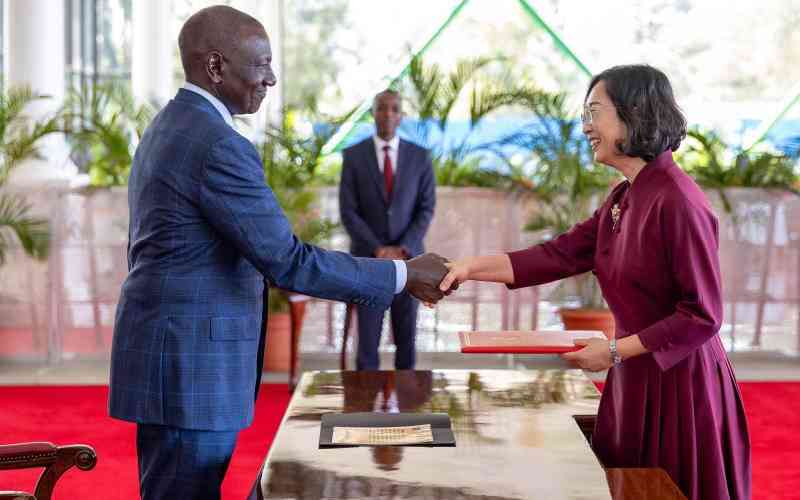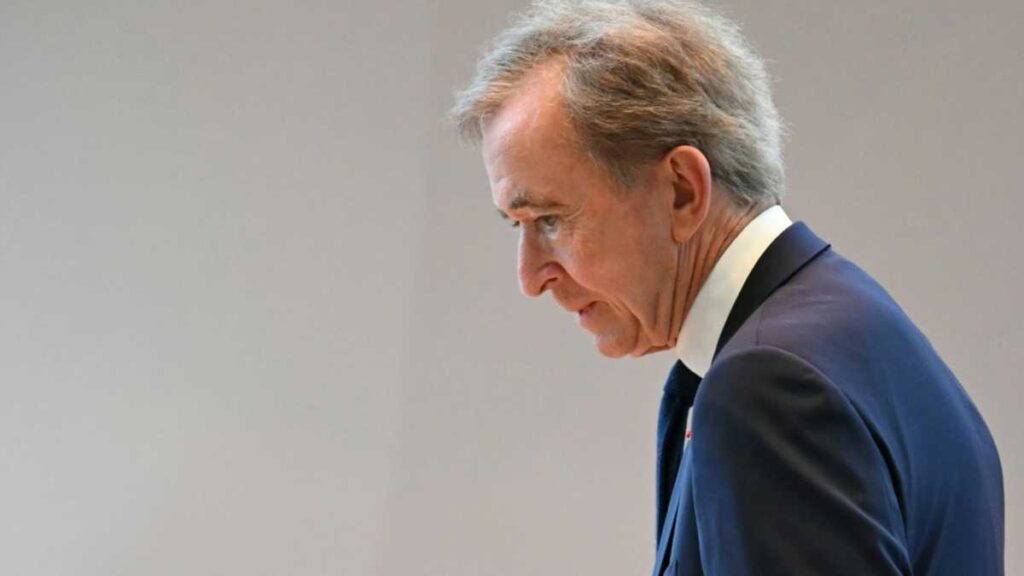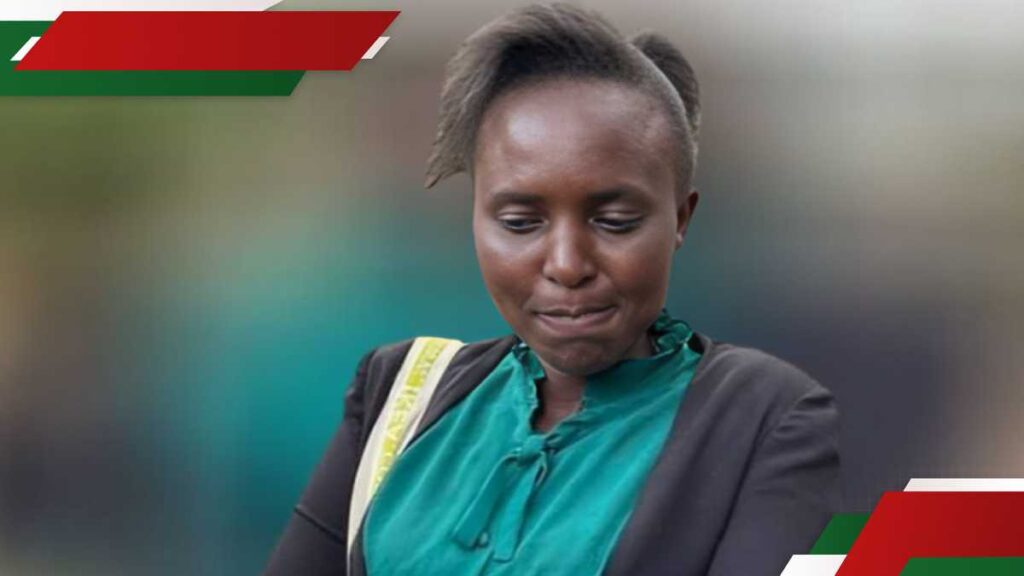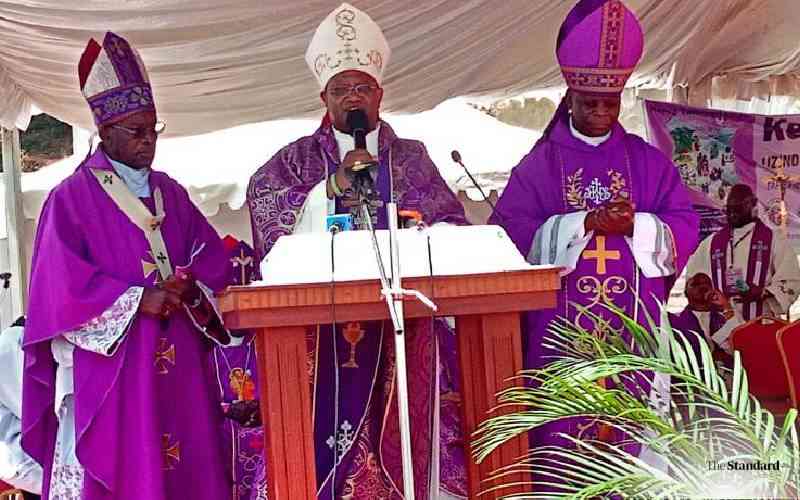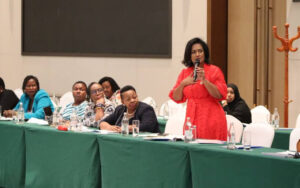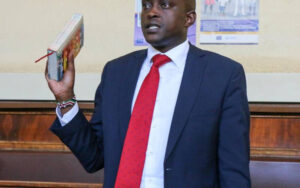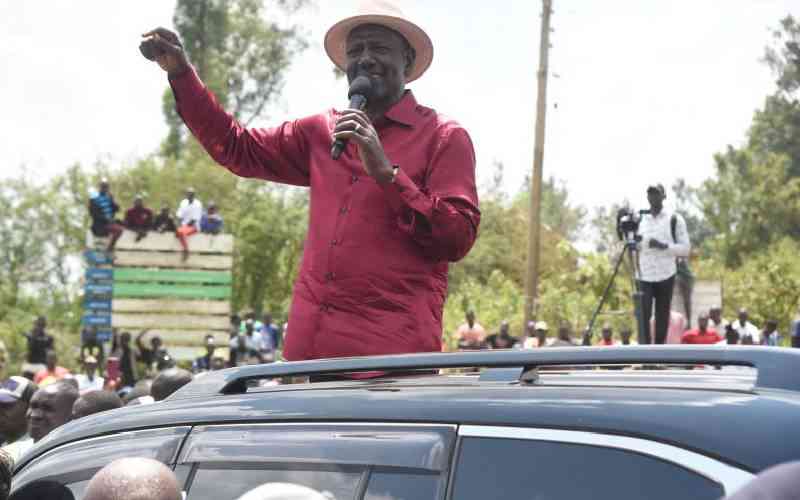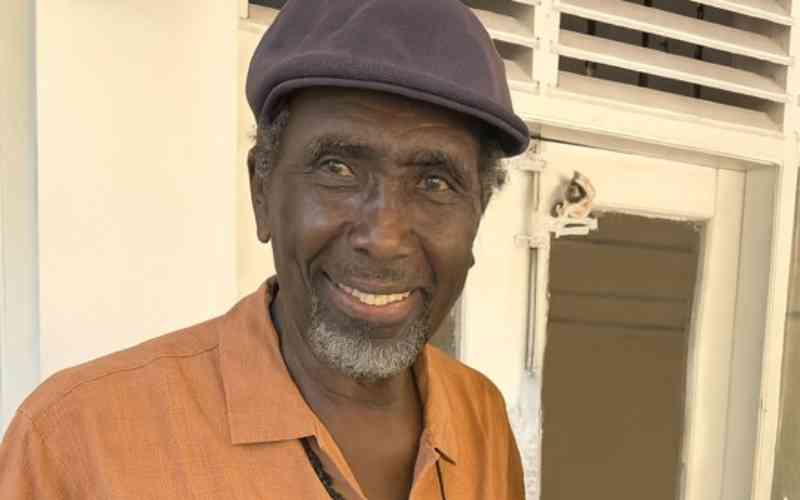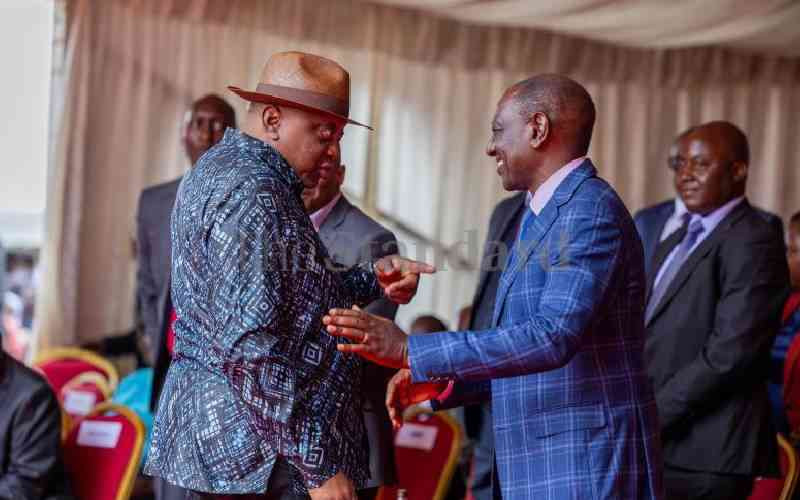Barely halfway into his presidency, William Ruto appears to be grappling with mounting internal discord, raising questions about the stability of his Cabinet.
Cabinet Secretaries have taken the unprecedented step of openly criticizing the government they serve. High-profile rejections of key appointments and whispers of dissatisfaction among insiders suggest a simmering crisis.
Even the much-touted formation of a broad-based government — designed to quell unrest — seems to be faltering, exposing a President battling to steady the ship. Ruto’s recent decision to axe some Cabinet members only underscores the turbulence threatening to derail his mandate.
The latest storm centres on resignation jitters gripping the Cabinet. On Sunday, Public Service Cabinet Secretary Justin Muturi publicly lashed out at the government over the wave of abductions, while Peter Mbae, the Head of Government Delivery Service, tendered his resignation.
These developments come just hours ahead of the vetting of newly nominated Cabinet Secretaries William Kabogo, Lee Kinyanjui, and Mutahi Kagwe — appointments widely seen as an attempt to recalibrate the government amid growing discontent.
Speaking at a Nairobi hotel on Sunday, Muturi lambasted the government’s handling of abductions.
“The cardinal duty of the State is to protect the lives and livelihoods of its citizens. The government cannot claim ignorance of such serious breaches of Kenyans’ rights to live free from wrongful confinement,” he said, adding that his family had suffered personal trauma after his son was abducted during the youth-led protests in June. At the time, Muturi was the Attorney General.
Several Cabinet Secretaries, speaking anonymously to The Standard, admitted they were contemplating resigning, citing a hostile working environment where their roles had been reduced to a formality.
“We don’t make policies in our ministries. We just find documents signed and sometimes published in the media without our input,” one CS revealed. Another lamented the interference by politicians in tender processes, which undermines their authority.
Discontent within the Cabinet has escalated, with members who harbor ambitions for elective positions fearing that association with the Kenya Kwanza government would hinder their election.
“Serving in this government has become politically costly,” one insider admitted, adding, “We all heard of the reports or read about people resigning, and their resignations not being accepted.”
Stay informed. Subscribe to our newsletter
This upheaval coincides with mounting public outcry over human rights abuses, including the surge in abductions of government critics. Critics accuse Ruto’s close allies of exerting undue influence, fostering corruption, tribalism and incompetence at the highest levels of government.
Mbae tendered his resignation, citing frustration over unaddressed issues within his role. In his resignation letter to Head of Public Service Felix Koskei, Mbae wrote: “Despite my passion and consistency, unresolved issues have made it impossible to perform my duties. My position is no longer tenable.”
But the President’s communication unit said Mbae’s resignation followed the dissolution of the Government Delivery Unit in July 2024.
The statement added that Mbae had ceased to be an employee after the dissolution of the portfolio he served under. “It is misleading to portray his departure as a resignation occurring in January 2025,” read the press release.
Despite the statement, the political fallout continues to unfold, with observers noting growing dissatisfaction.
Nairobi Senator Edwin Sifuna acknowledged ODM’s support for President Ruto but expressed doubt over his chances of winning the next election.
“If you’re unpopular, it doesn’t matter who you have around you. We’ll lose with Ruto even if we support him,” he said in a recent interview.
As Ruto enters his third year in office, internal wrangles and political rebellion pose significant challenges to his administration. The frustration among Cabinet members who want to resign adds to a growing list of people who have turned down government appointments.
In August last year, then-newly appointed Cooperatives Development and MSMEs Cabinet Secretary Wycliffe Oparanya promised to resign if his advice was ignored. Oparanya joined the Cabinet following a deal between Ruto and ODM leader Raila Odinga.
“I will help them. But if I tell them we should move in a certain direction and they ignore my counsel, I will leave and go back home,” Oparanya said.
Muturi’s parting shot on Sunday underscored the gravity of the crisis: “One of the key promises we made was to end disappearances and extrajudicial killings. We vowed never to allow such atrocities under our watch.”
For some observers, it was curious that the statement by Muturi was signed off without his designation as Cabinet Secretary. Speculation is that he may be on his way out of the government.
Insiders indicate that behind the scenes, more officials may be contemplating exits, further complicating Ruto’s efforts to steady his administration amid growing public and internal discontent.
Last Friday, former ICT Cabinet Secretary Margaret Nyambura Ndung’u declined President Ruto’s nomination as Kenya’s High Commissioner to Ghana, citing personal and family reasons. She was scheduled for vetting by the Defence, Intelligence, and Foreign Relations Committee on Friday but sent a letter withdrawing her nomination.
Committee Chair Nelson Koech, who read the letter, noted that this was the second rejection of a posting to Ghana after former West Mugirango MP Victor Mogaka Kemosi declined the job in April 2024.
“This has been occasioned by personal and compelling family matters which, after careful consideration, will not allow me to take up the position of High Commissioner to Ghana as nominated by President William Ruto on November 19, 2024. To save the precious time of the important parliamentary business, as per the provisions of the Act I have forementioned, kindly take note that this letter serves as a notice not to appear. Thank you for your invitation and follow-up,” Ndung’u’s letter reads.
Koech accused Head of Public Service Felix Koskei and the Ministry of Foreign Affairs of failing to properly vet diplomatic nominees.
Former Machakos Town MP Victor Munyaka in October last year declined his appointment as chairman of the Kenya Animal Genetic Resource Centre by President Ruto.
Ruto had named Munyaka to the role in a Kenya Gazette notice on October 4. However, Munyaka turned down the position in a social media statement on October 6.
“I thank the Head of State for offering me the opportunity to serve Kenyans in such a capacity. However, after soul-searching, extensive consultations, and consideration of the current political climate that threatens the realization of the government’s economic transformation agenda, I have made the difficult decision to respectfully decline this appointment,” Dr Munyaka said.
Ndung’u, who was scheduled for vetting on Friday, January 10, at 9 a.m., officially withdrew through a letter. Koech stated that Koskei and the Ministry of Foreign Affairs should conduct thorough checks before submitting nominees to Parliament, as rejections reflect poorly on President Ruto and Kenya.
“It is imperative for this committee to put on notice the Ministry of Foreign Affairs and the Head of Public Service that they should do their due diligence in the future when making such appointments,” Koech said, adding, “The picking of names of individuals who probably may not have been consulted or have no interest in representing our country is not only an embarrassment to the country but also to the President.”
Koech emphasized the need for careful selection of candidates for state jobs, ensuring they are fully committed to serving the country and representing President Ruto effectively.
“We want to put on notice that this exercise of dropping names of individuals not interested in being diplomats should stop, and we should be more cautious and intentional in selecting people who have an interest in serving the country and representing the President,” he said.
“It is extremely embarrassing that, for the second time, a nominee to the High Commission of Ghana has declined. As a committee, we do not take this very lightly.”
In July 2024, LSK President Faith Odhiambo declined her appointment to the President’s Taskforce on Public Debt Auditing, calling the move unconstitutional. The LSK cited a court ruling that designated the Auditor-General to audit the Trans Nzoia County government. Ruto appointed a four-member team to audit the country’s public debt and present a report within 90 days.
“The Council of the Law Society of Kenya has thus resolved that neither our President nor any of our members shall take up appointments or participate in the said task force,” LSK said.
“The LSK, under its statutory mandate, advises the President to refrain from usurping the constitutional powers of the Auditor-General through Executive Orders and allow the Auditor-General to perform her constitutional duties.”
In July 2024, Justina Wamae, the 2022 Roots Party presidential running mate, declined a presidential appointment to a health task force, citing maternity leave.
“Thank you, Mr President, William Samoei Ruto, for recognizing my strength, capacity, and ability, and subsequently appointing me to serve in the Presidential Taskforce on Addressing Human Resources for Health vide Gazette Notice No. 8437 Executive Order No. 5 of 2024 dated July 5, 2024. However, after careful consideration, I have decided to decline your offer, given that I’m currently on maternity leave, and this development would affect my ability to work effectively at this time,” Wamae said.
In his last speech on August 13, ousted Treasury CS Njuguna Ndung’u admitted that higher taxes are being pushed by foreign interests, which is against President William Ruto’s stance—something President Ruto has never acknowledged. He blamed the government for inconsistencies in policies and stated that the country has limited revenue. He emphasized that imposing high tax rates will not necessarily raise tax revenues, and the reality is different.
Prof. Ndung’u opposed high taxation of Kenyans as he exited noting that the debt burden cannot be sustained by revenue alone and stressed the need to address patterns of expenditure.








